Politics and Government: Socialism
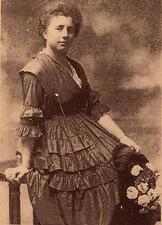
Margherita Sarfatti
Born into a wealthy Venetian Jewish family, Margherita Sarfatti joined the Socialist Party and became the art critic for the newspaper Avanti!, where she met Benito Mussolini. The two became lovers, and she followed Mussolini into the Fascist movement and helped plan the rise of the Fascists, only abandoning his cause when Mussolini embraced antisemitism in 1938.
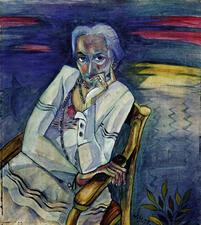
Rosa Schapire
Rosa Schapire was one of the few women to pursue art history studies at a time when the discipline itself was still in its infancy. Her foray into this male-dominated profession was indicative of her allegiance to feminist aspirations to equal opportunity and adult suffrage.
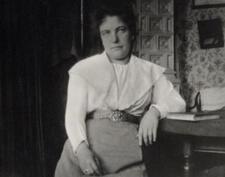
Therese Schlesinger-Eckstein
Therese Schlesinger’s life was characterized by her lifelong passion for learning and her endeavor to improve the plight of working-class women. She was a dedicated feminist who was inspired by the ideals of socialism, struggling to combine both of these political passions within the Austrian Social Democratic Party.
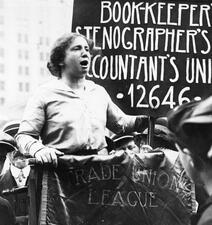
Rose Schneiderman
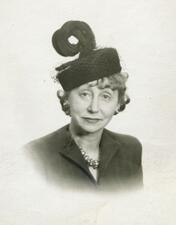
Adeline Schulberg
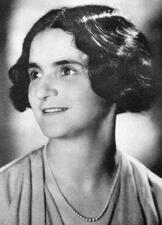
Toni Sender
Toni Sender’s wide-ranging quest to save the world led her from the union hall to the German Parliament (as a socialist) and finally to the United Nations. She helped found Germany’s Independent Social Democratic Party (USPD) and served in the German Parliament from 1924 to 1933. After fleeing to the United States in 1933, she joined the board of the German American Council for the Liberation of Germany from Nazism, and after 1944 she became active with the UN, retiring in 1956.
Evelyne Serfaty
Evelyne Serfaty was one of the most active women in the Moroccan Communist Party. Through her activities with the party, she militated for Moroccan independence from French and Spanish colonial rule. She was kidnapped and tortured for her brother’s political activities in the early 1970s under Morocco’s post-independence authoritarian state.
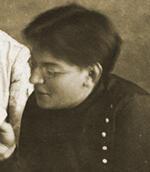
Mania Wilbushewitch Shochat
Zionist and socialist, radical and revolutionary, Mania Shochat left behind her labor activism in Russia to come to Palestine, where she initiated the country's first collective settlement and helped to establish the Jewish defense group Ha-Shomer.
Helene Simon
Greatly influenced by the socialist ideology of the Fabian Society in London, Helene Simon was as a pioneer in the theory and practice of social policy and welfare in Germany. Simon was a major advocate for structural changes in Germany’s welfare system, especially for the benefit of women and children.
Chava Slucka-Kesten
Chava Slucka-Kesten started teaching in Warsaw before World War II and continued her career through the war in Moscow. After the war she became an author and sustained her political involvement. Writing from the perspective of a politically engaged woman, Slucka-Kesten offers a unique glimpse into pre- and post-war Jewish life in Poland’s cities and villages, as well as into the early years of the State of Israel.

Socialism in the United States
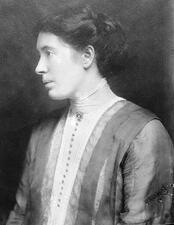
Rose Pastor Stokes
Manya Gordon Strunsky
Manya Gordon Strunsky was a socialist activist and a respected writer on political and social issues. Strunsky was also instrumental in bringing Jewish immigrants from czarist Russia to America and helping them to become settled.
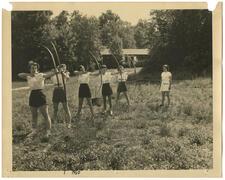
Summer Camping in the United States
The Jewish summer camp movement shaped ethnic-American identity and Jewish childhood throughout the twentieth and into the twenty-first century. A means to fight anti-Semitism by showcasing patriotism and developing the camper’s physical fitness, it was also a safe space to explore, question and craft religious traditions and rituals, novel ideas about girlhood, and the possibilities of womanhood.
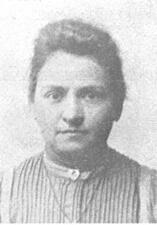
Roosje Vos
Roosje Vos was an organizer of the Dutch socialist movement and an editor of De Naaistersbode, the journal of the seamstresses’ trade union. She represented the interests of feminists and women in the movement, at times at odds with her fellow leaders.
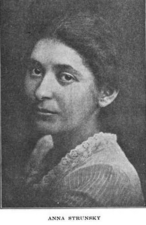
Anna Strunsky Walling
Anna Strunsky Walling was a Russian-born author, journalist, lecturer, and social activist. She produced several novels and memoirs and was involved in a number of political organizations, including the Socialist Labor Party and the National Association for the Advancement of Colored People, which she and her husband helped found.
Rosi Wolfstein-Fröhlich
Rosi Wolfstein’s life constituted a battle against war, racism, and social injustice. She worked with other socialist political figures such as Rosa Luxemburg, helped found the Independent Social Democratic Party, and was a representative for the German Communist Party. Despite having to flee to the United Stattes during World War II, Wolfstein returned to Germany and remained active in party and workplace politics until her death.


